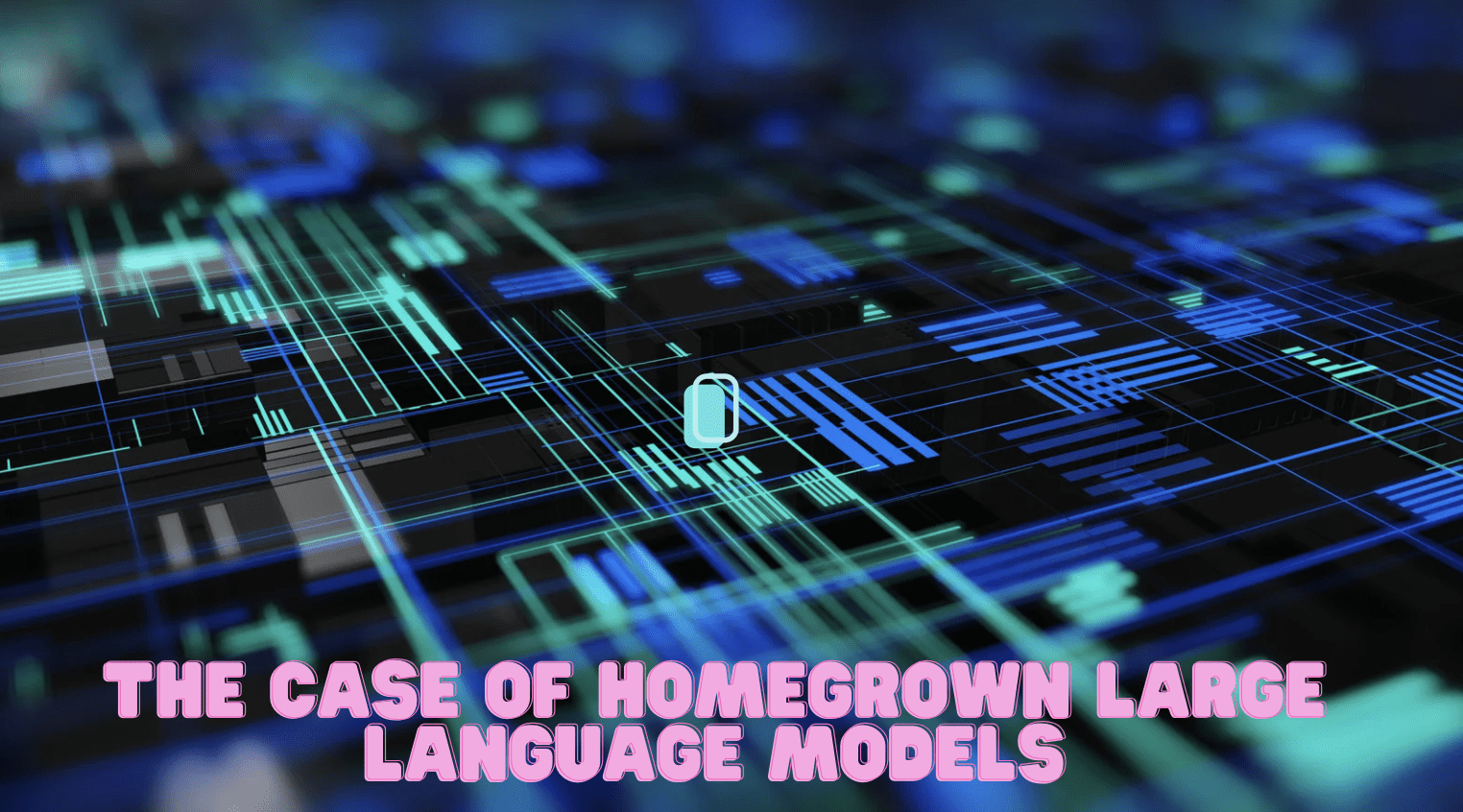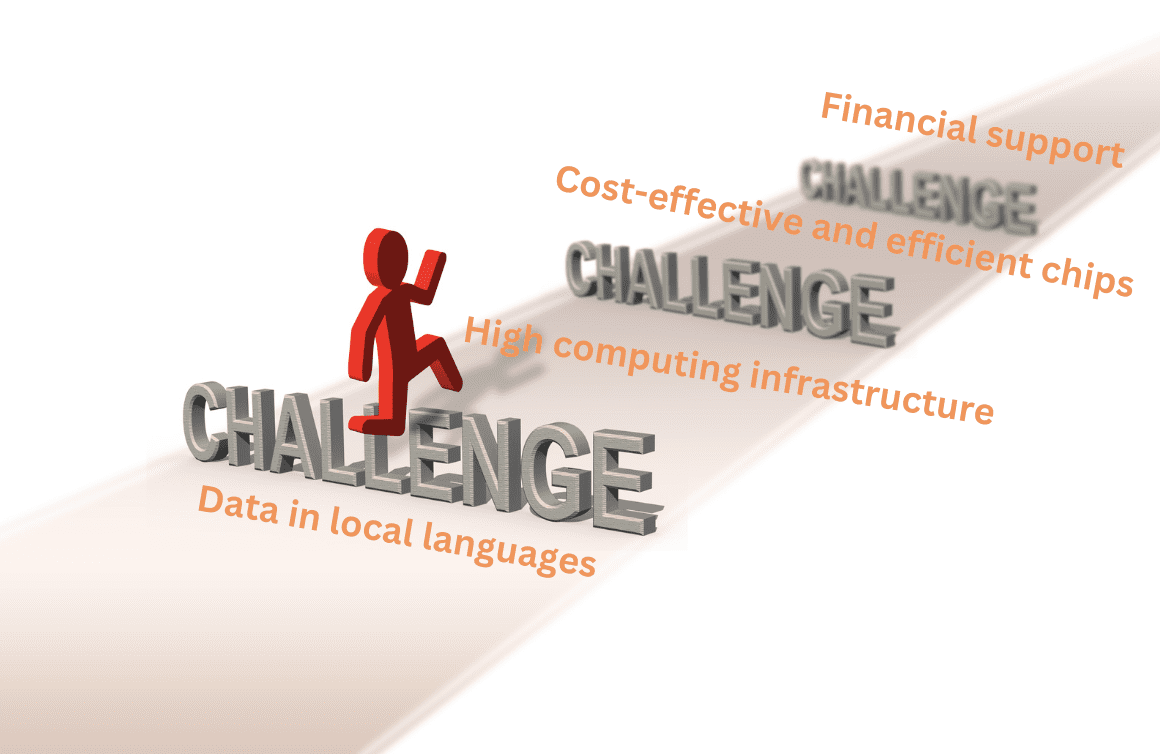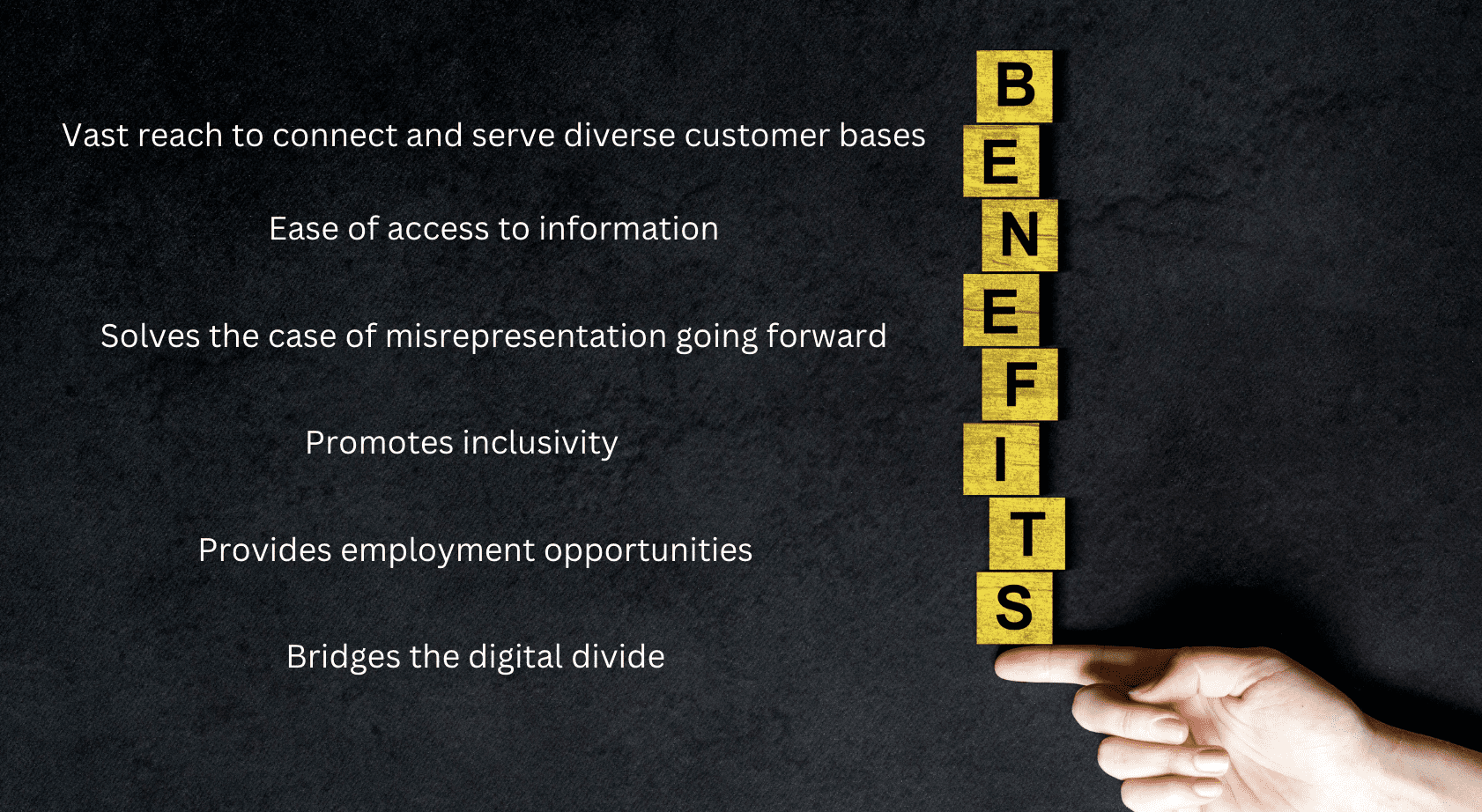The Case of Homegrown Large Language Models
Recent developments in building large language models (LLMs) to boost generative AI in local languages have caught everyone’s attention. This post focuses on the needs and challenges of homegrown LLMs amid the fast-evolving technology landscape.
Most of the notable LLMs are adept at widely-spoken languages such as English but do not cover the linguistic diversity that can effectively serve the global cultural and regional nuances.

Image by Author
Benefits
Building home-grown LLMs is a significant technological step and calls for its merit. Predominantly, it sets a precedent for everyone to be part of this digital transformation, making a win-win for both – by allowing wider reach to customers as well as enabling businesses to expand their reach, connect, and serve diverse customer bases across the world.
AI finds appealing use cases in many applications while handling cognitive overload, ease of access to information, and enhancing customer experience.
The LLMs trained on diverse linguistic spread cover all three grounds, providing easy and timely access to the information. Such facilitation of knowledge at the fingertips can help many local communities get the much-needed help and support to get their inquiries resolved.
Challenges
While we have covered a lot of ground in favor of building such models, it is equally important to call out that such model development requires access to data in local languages. Needless to say, it might appear challenging at first but is not unachievable.
In fact, it quickly becomes a boon for local communities in the form of data labeling (more on this in the coming section), when data collection processes are built efficiently at scale.

Image by Author
Furthermore, developing LLMs requires high-performance computing infrastructure, such as GPUs and cloud computing services, which is expensive and requires a sponsor/partner to provide financial backing.
Inevitably, the success of any nation hinges on building cheaper and more energy-efficient chips to build the next generation of AI models. It also needs increased R&D funding to facilitate a platform for brainpower to come together through extensive collaboration between academia, industry, and government.
Data is not the New Oil?
Data is not the new oil anymore, but the one who knows how to process such large datasets, raising the need for energy-efficient chips.
In addition to software, developing models trained in local languages requires funding the R&D in cutting-edge technology and building self-sufficiency in hardware. Further, the large models are heavily dependent on data centers that require extensive power, raising the need for power-efficient chips.
Ethical Lens
It gives a sense of one-ness where we are including everyone to be a part of this technological breakthrough and while doing so, they also get to become part of that digital world aka data so the next wave of new models includes them too, solving the case of misrepresentation going forward.
LLMs trained in local languages would not only have data dominance but would also play a big role in promoting diverse cultures.
Jobs and Opportunity Creation
While most believe that LLMs might negatively impact the employment sector, there is a positive side to it too. It is a win-win for it provides employment opportunities to the technology developers as well as the entire participants in the whole value chain of such technology stack.
Additionally, removing the barriers to how non-English speakers can use technology can lead to improving their lives in meaningful ways. It can open the door to opportunities, making them active participants in how the world is run today.
More jobs will be created. Creating diverse data might look like a challenge to some at face value. Still, once done efficiently at scale, it can quickly become an opportunity to provide wage opportunities to the contributors. Local communities can participate in such data generation initiatives and participate in this revolution at the foundational level while getting recognized for playing their part in the form of wages and royalties for their contribution.
Digitalization is an Equalizer
Access to knowledge is the biggest leverage, and digitalization has been a big equalizer. The ratio of “teachers, lawyers, doctors support” to the “population” is reportedly low in developing nations compared to developed nations, clearly highlighting the gap that can be efficiently bridged by applications helping the customers resolve issues in the early stages or receive guidance to the next steps. This becomes feasible if the user is comfortable with the conversational language of AI-powered chatbots.

Image by Author
Consider sectors like agriculture where LLMs can help farmers without any language barrier. Farmers can get guidance on irrigation best practices and enhancing efficient water use.
Take another example from the healthcare sector. Understanding the complex domain-specific terms in those insurance policies is challenging for us all. Opening up a chatbot that can leverage its adaptive tutoring style to educate all communities in the language they understand is a big effort in bringing parity.
Digital Unison
AI models that are inclusive of varied languages help bridge the digital divide and bring everyone on the canvas of opportunities that come with such technological advancements. Most importantly, such inclusivity puts the much-needed focus on the marginalized sections and makes them a key participant in this revolutionary change. It accounts for ethical considerations by providing fair access to local groups too.
Vidhi Chugh is an AI strategist and a digital transformation leader working at the intersection of product, sciences, and engineering to build scalable machine learning systems. She is an award-winning innovation leader, an author, and an international speaker. She is on a mission to democratize machine learning and break the jargon for everyone to be a part of this transformation.
